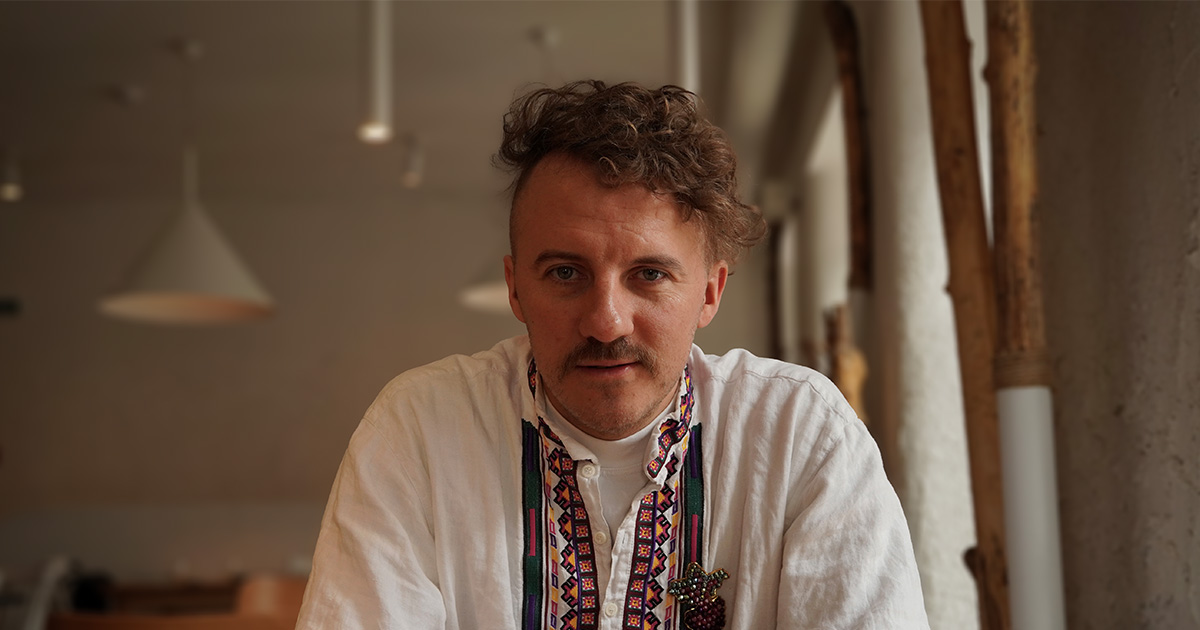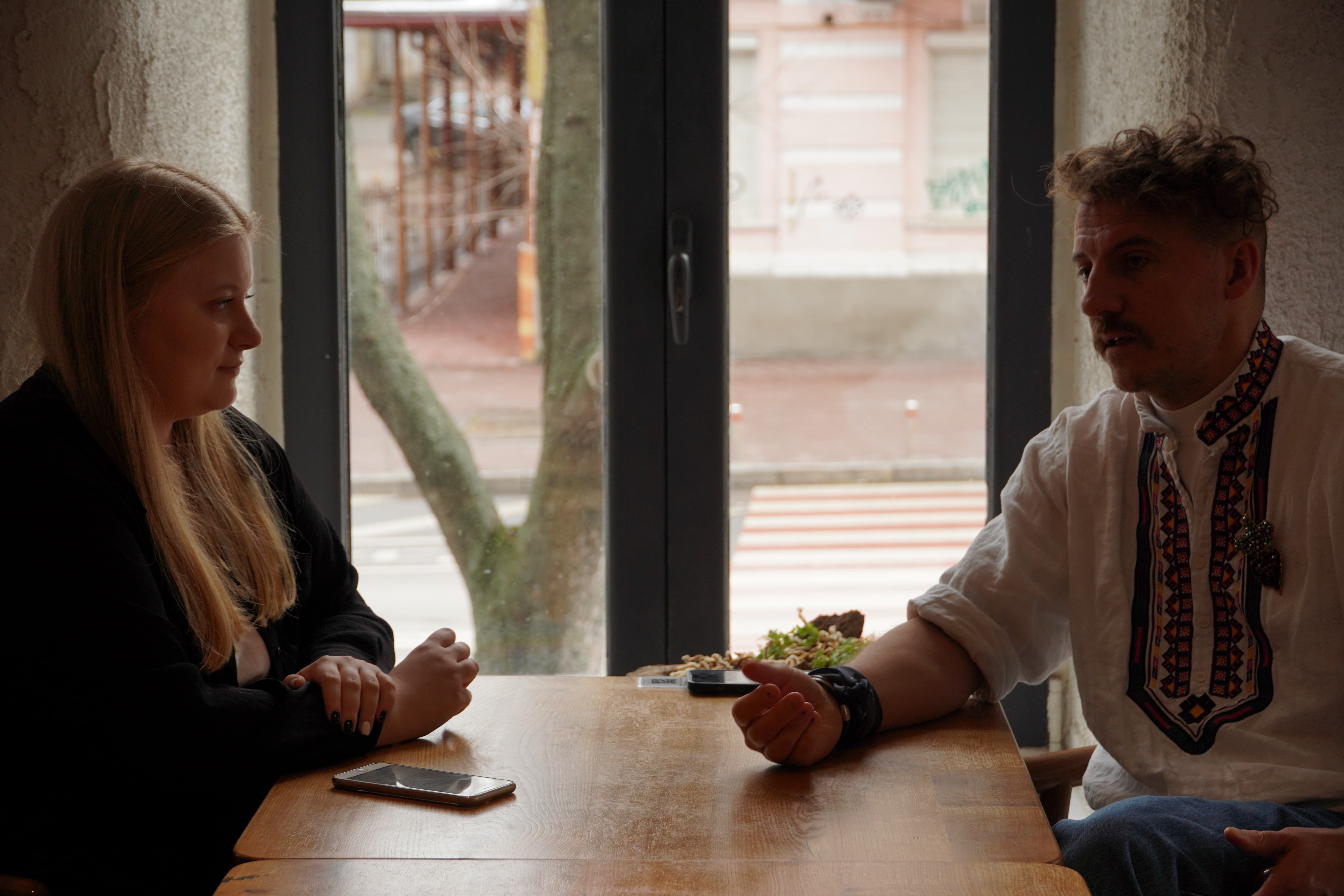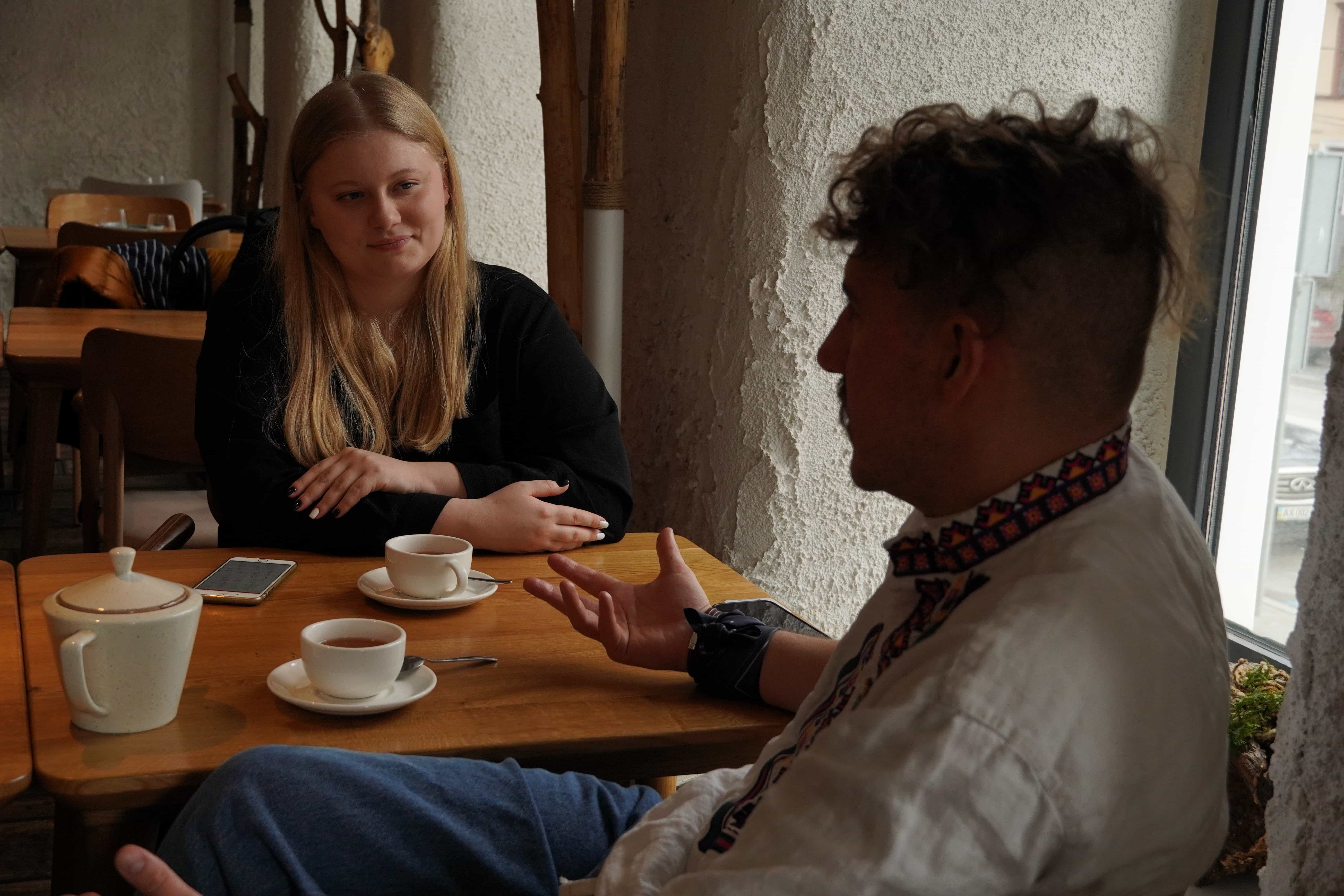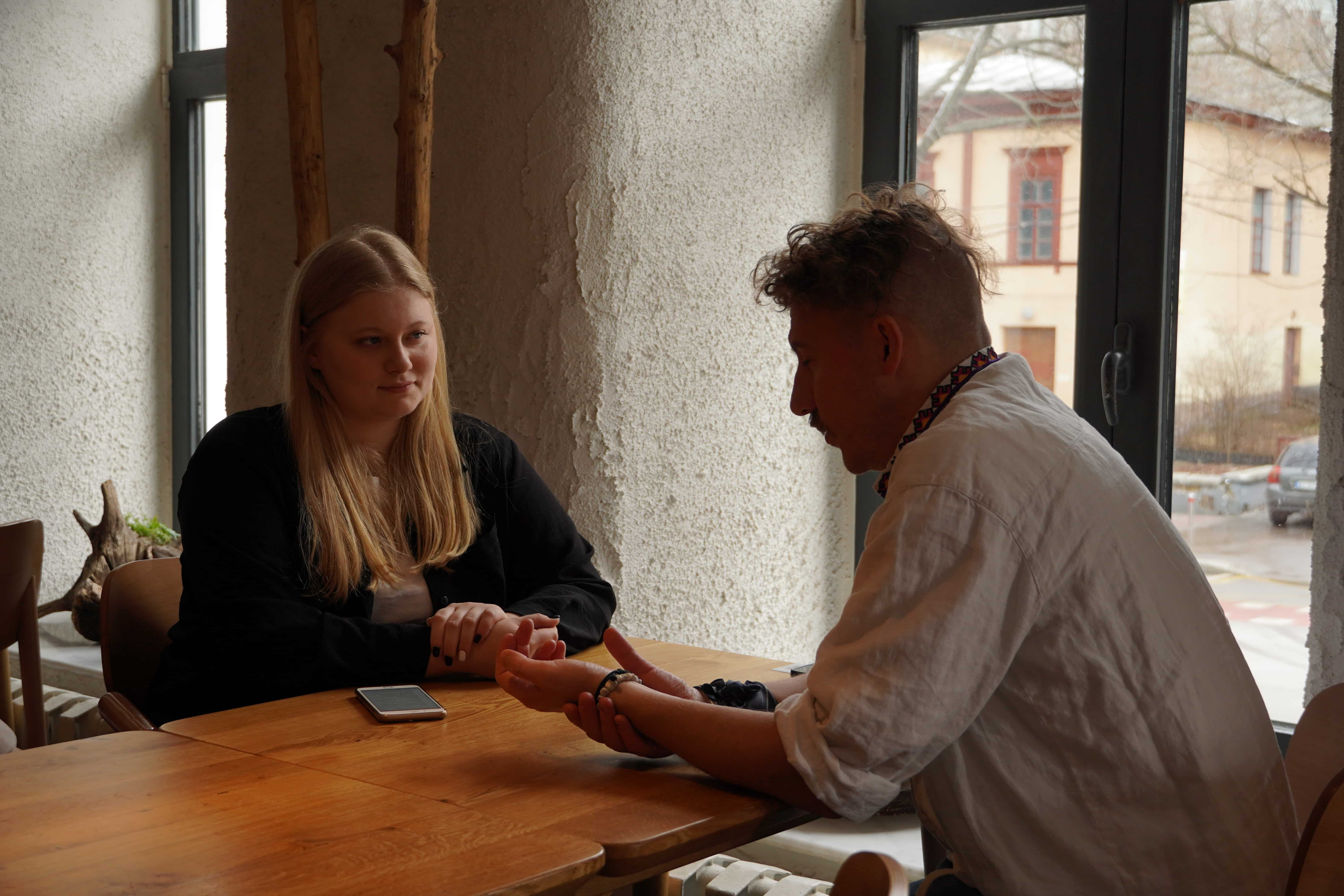Not just borshch: what is Ukrainian cuisine really like?

What mostly comes to mind when you think of "Ukrainian cuisine"? Borshch, varenyky, salo and... that's it? But have you ever heard of hamula, buryshnyk or guslianka? Do you know about Ukrainian spices or sweets?
Yevhen Klopotenko is a Ukrainian chef, author of a number of cookbooks, initiator of Ukraine's submission to recognise borshch as part of UNESCO's intangible cultural heritage, and promoter of Ukrainian cuisine.
Svidomi talked to Yevhen Klopotenko about how to break the stereotype that Ukrainian cuisine is only borshch and varenyky, how to promote Ukrainian cuisine in the world and get rid of the Soviet culinary legacy.
There are many dishes of Ukrainian cuisine that Russians call their own — borsch, varenyky. How do we deal with this, how do we explain to the world that this is Ukrainian, not Russian cuisine?
This is really a fundamental question that has no answer. I think we need to open Ukrainian cuisine restaurants, and it doesn't matter what we sell there, it's important that there are many of them.
Before the full-scale war, I knew maybe ten Ukrainian restaurants in the world (in Canada or the US), and they were mostly connected with the diaspora. So strategically, we need to have a country's policy so that it gives money, some kind of subventions for opening. Or for people who live there to open an establishment themselves. Then this will be the first step towards explaining what is Ukrainian and what is not.
For example, Russians consider varenyky to be theirs. We say they are ours, and Poles consider them theirs — they call them pierogi. And they open many restaurants. As a result, everyone in the world knows that pierogi is theirs.
What to do with this? This a matter of PR. We need to open English-language websites and make presentations of Ukrainian cuisine.
What is Ukrainian cuisine really like?
The problem is that we, Ukrainians, do not know what Ukrainian cuisine is. And we come back to the fact that we need to start with ourselves. This is not a quick process. But the sooner we understand what Ukrainian cuisine is, the easier it will be to open Ukrainian cuisine to the world.
That's why this is a huge worldview issue. After the victory, we will have another 2-3 years to start promoting everything Ukrainian, and cuisine in particular. We have one way — only Ukrainian cuisine. If we don't make it, the Russians will become more active in the world.

American, Italian, and Japanese cuisines are popular all over the world. How realistic is it that in some time the world will know Ukrainian cuisine like that?
It's not realistic at the moment. There is no obvious tool to change the attitude of foreigners around the world to Ukrainian cuisine. There is Thai, Italian, and American cuisine. These are probably the three largest groups of people who have managed to "manipulate" with food.
We also lack awareness. We don't have the same love for our cuisine as the Italians, for example.
The most we can do, no matter how trite it may sound, is to open borshch restaurants.
Ramen can be an example for us. It's also simple... It's also a pork soup that takes two days to cook. And noodles are added to it. Nothing more. Ramen is like our borshch. This is our way. We can only become popular in the world thanks to borshch. And we don't need to invent other dishes, because we need our flagship to float — something that is the most famous. And then create all the other things around it.
Speaking of Ukrainians, we also often think of Ukrainian cuisine in terms of borshch and varenyky. What else can you name on a par with borshch?
Since childhood, we've known Soviet cuisine. Because Chicken Kyiv, dressed herring, Olivier salad, vinegret, mashed potatoes, cutlet, bread loaf, Mimosa salad, potatoes with herring, pelmeni, mayonnaise, and Kyiv cake are not Ukrainian cuisine. This is French cuisine, which for some reason, became Soviet and "entered" our national cuisine.
This is the biggest problem. We need to realise that there was a huge period of the USSR in our culture, which greatly influenced us. And we need to first understand what Soviet cuisine is. And then start talking about Ukrainian cuisine.
Speaking of Ukrainian dishes, for example, banosh takes 5 minutes to cook. Does everyone cook it at home? I'm sure not. For some reason, everyone thinks it's difficult. Do we eat wheat? No, we don't. Why? Nobody knows. Do we add oregano to our dishes? No, we don't. Do we add chamomile? No, because we have never thought about it. Can we make a good mushroom soup? I think we can. But for most people, it's something strange, it's not a very popular Ukrainian dish.
Or even varenyky. With cherries and poppy seeds. These are two unique Ukrainian combinations that you have to eat. Or if we talk about soup, which combines both fish and mushrooms. It's such a delicious combination. Or, for example, meat with herring — it's delicious. Or chebureks (çiberek), which we have ruined our attitude to. In fact, this is our Ukrainian taste that needs to be popularised. The same is true for farshmak, bohrach (bogrács). These are all dishes of Ukrainian cuisine that different nationalities have given us.
For example, lemishka which is boiled buckwheat flour. But few people know about it. Huslianka is our yoghurt. We also have krovianka (blood sausage), which we should eat much more. Because before, krovianka was only for funerals or weddings.
It is important to talk about Ukrainian cuisine. For example, bloggers or comedians talk about it, and 400,000 people will watch it. This is a huge effect that occurs in the process of conveying information. People will soon start to look at Soviet cuisine and Ukrainian cuisine. Then they will start to love Ukrainian cuisine and explore it.

What can Ukrainian street food look like?
This is also not an easy question, but I think çiberek is definitely ready-made street food.
There's also buryshnyk, which is a pie with potatoes and corn grits from the Hutsulshchyna. These are the same dumplings, they can be fried or steamed. These are dumplings with different fillings and sauces. These are pampushky. This is also our Galician speciality. The same borsch can become ramen, a kind of half-street food. We can make some kind of pudding out of wheat.
There is room for development here.
What are Ukrainian sweets like?
We have a different approach to sweets. For example, we do not make desserts in the sense people are used to. We make pastries, poppy seed pies, poppy seed cakes, and some kind of raspberry pies.
The best taste is baked apples, which is unique to our territory. Sometimes cream is added to them, sometimes they are used to make biscuits called hamula, sometimes dessert soups. The taste of baked apples, poppy seeds, and cherries are the three main things we have.
This is what sets us apart and what we can work on. For example, in Poland, when you say cherries, you get sweet cherries because everyone in the world eats sweet cherries. We are the only ones who eat sour cherries. So when you go somewhere abroad and ask for dumplings with sour cherries, they will give you dumplings with sweet cherries. Understanding that only we have sour cherries, poppies, and baked apples is important.
The same goes for cottage cheese or syrnyky with honey — you won't find this anywhere else.
Don't think that our desserts are cakes. Everything here is based on yeast, flour, cherries, poppy seeds, and apples.
Coming back to çibereks, this is Crimean Tatar cuisine. How can we develop it, and what can be popularised from it?
Many things can be popularised. For example, they have sarma, a dish made from grape leaves. Köbete is similar to çibereks — it's a pie with lamb and potatoes in yeast dough. There's also a unique thing called kurabiye biscuits.
But what should we do? We need to take simple things. You don't have to talk about everything while promoting us because then you will break down. You take çibereks and tell everyone that this is Ukrainian cuisine.
People will be shocked and ask why it is Ukrainian cuisine. Because these are Crimean Tatars, and Crimea is Ukraine. And when you combine this, people will continue to promote it themselves. So our task here is to talk about these çibereks wherever we can.
We need chefs to make dinners with each other and talk about çibereks. We need a person to sit and eat çibereks in a film.
Is it good or bad that Ukrainians have so many liqueurs and tinctures?
Infusion is a basic technology for extracting aroma and flavour, but there is not much in the world that is infused.
Ukraine is a unique part of the world in this regard. In fact, tinctures are a way to preserve our various products. Although now they have become a little bit of a stereotype and have ceased to be an attribute. When people come to us, they want tinctures and varenyky. This is definitely a part of Ukrainian culture, and that's good. But they need to stop being part of sharovarshchyna (a stereotypical representation of Ukrainian culture — ed.).
When you go to any Ukrainian restaurant, there will be tincture. And this is a disadvantage because they are devalued. This situation is the same as with çibereks. There is no need to change the tinctures, but they need to be brought out of the shadows.
When you drink tincture, you feel connected to the roots. But when you drink tincture like any other alcohol, you don't feel rooted.

When foreigners watch their cuisine being cooked in other countries, it usually makes a negative impression. For example, pineapples on pizza. When Ukrainian cuisine, borshch, for example, becomes more popular in the world, it is clear that some elements of their own will be added to it, and it will be modified in some way. Does it make sense to be negative about these changes?
It makes a lot of sense. Italians are cool because they can fight at the level of food. It's a bit of a cult for them, it's important to them. My dream is that we could also fight over food.
I won't worry because I believe borshch itself is something that unites everything. And all peoples, all cultures and traditions can add anything. And this is its uniqueness, that it can be modified. But I will never talk about it because as long as Ukrainians fight over it, it will mean that we have this cult and we are passionate. On the contrary, I would be upset if we became indifferent to it. It's important for us to fight for the representativeness of Ukrainian cuisine.
Is a Michelin-starred restaurant serving Ukrainian dishes made from local products a near reality or a distant dream?
It's not a distant dream because, first of all, there is no such dream. We won't get a Michelin star because it's all bureaucracy. In general, I think modern gastronomy is tired of it.
Haute cuisine used to be something super important and unusual. But it's probably transforming now... It doesn't make sense to exist. You look for those animals, raise them, give the meat to people who don't care because they can pay 800 euros for a meal but they don't care. And those who do care cannot afford it. So, I think this haute cuisine will come down to a lower level and become accessible to everyone. We take haute cuisine, look for products, ingredients, combinations, and make it available for everyone to enjoy.
It's just a new approach that is now emerging in the world, and we are part of the world and follow this trend. People, in fact, will be the main decision, not some criteria from above. And then we get our own award, not a star, but, for example, our own planet, a fork, or some other award that will be invented.


